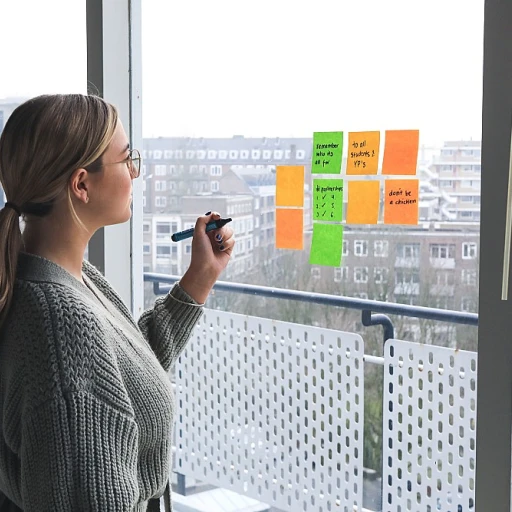
Understanding the role of a workplace experience manager
Defining the Modern Workplace Experience Manager
The role of a workplace experience manager in New Zealand offices has evolved rapidly in recent years. This manager is not just responsible for facilities management or office logistics. Instead, the focus is on creating a positive, productive, and engaging work environment for all employees. The workplace experience manager acts as a bridge between people, space, and technology, ensuring that every aspect of the office supports employee satisfaction and productivity.
What Sets This Role Apart?
Unlike traditional management workplace roles, experience managers take a holistic approach. They look beyond day-to-day operations and consider how the workplace environment impacts employee engagement, company culture, and even business outcomes. Their responsibilities often include:
- Designing and implementing workplace strategies that enhance employee experience
- Optimising space utilisation to support hybrid work and flexible teams
- Leveraging digital tools and data-driven insights for continuous improvement
- Collaborating with HR, IT, and leadership to align the office environment with company goals
Why This Matters for New Zealand Companies
As the nature of work changes, New Zealand companies are recognising the value of a dedicated manager role focused on workplace experience. The shift to hybrid work, the growing importance of employee engagement, and the need for adaptable office spaces all highlight the importance of effective experience management. For a deeper look at how operational efficiency connects to this role, see this analysis of contract management and office efficiency.
Key Responsibilities at a Glance
| Area | Workplace Experience Manager's Focus |
|---|---|
| Employee Engagement | Fostering a culture of collaboration and satisfaction |
| Space Utilisation | Ensuring efficient use of office space for teams and hybrid work |
| Technology Integration | Implementing digital solutions to improve the work environment |
| Data-Driven Management | Using analytics to inform workplace strategy and improvements |
Understanding the role workplace experience managers play is the first step in transforming New Zealand offices into environments where people and business thrive. The following sections will explore why this role is becoming essential, the skills required, and practical strategies for success.
Why New Zealand companies need a workplace experience manager
Why New Zealand offices are rethinking workplace management
In recent years, New Zealand companies have faced rapid changes in how people work. The rise of hybrid work, evolving employee expectations, and the growing importance of digital tools have all pushed organisations to rethink their approach to the workplace environment. The role of a workplace experience manager is now seen as essential for creating a productive, engaging, and people-focused office.
Challenges driving the need for experience managers
- Hybrid work models: With employees splitting time between home and office, companies need to ensure the workplace remains relevant and supports collaboration, engagement, and productivity.
- Employee engagement and satisfaction: Retaining talent is a top priority. A positive workplace experience can boost employee satisfaction and foster a strong company culture.
- Space utilization: As office space becomes more flexible, effective management is needed to optimize usage and create environments that support different work styles.
- Technology integration: Digital tools are central to modern workplace strategy. Managers must ensure technology enhances, not hinders, the employee experience.
- Data-driven decisions: Companies are increasingly relying on data to inform workplace management, from facilities management to employee engagement initiatives.
Benefits for New Zealand companies
When a workplace experience manager is in place, companies can expect:
- Improved employee experience and engagement
- Higher productivity and collaboration across teams
- Better alignment between workplace strategy and business goals
- More efficient use of office space and resources
- A workplace environment that attracts and retains top talent
For office managers looking to maximize value and drive positive change, understanding the opportunity assessment in purchasing can be a key part of the journey. The manager role is evolving, and those who embrace experience management are well-positioned to lead their teams into the future of work.
Key skills for effective workplace experience management
Essential capabilities for driving employee engagement and productivity
Workplace experience managers play a crucial role in shaping the work environment and supporting employee engagement in New Zealand offices. Their effectiveness depends on a blend of technical knowledge, interpersonal skills, and a strong understanding of workplace management. Here are some key skills that set successful experience managers apart:- Communication and collaboration: Experience managers need to communicate clearly with teams, leadership, and employees. They must listen to feedback, mediate between departments, and foster a culture of open dialogue. This helps create a positive workplace environment where people feel valued.
- Data-driven decision making: Using workplace analytics and employee feedback, managers can make informed choices about space utilization, hybrid work policies, and facilities management. This ensures that the office environment supports both productivity and employee satisfaction.
- Technology proficiency: As digital tools become central to the modern office, experience managers must understand workplace technology. From digital booking systems to security solutions, technology helps streamline processes and improve the employee experience. For example, implementing smart security measures can enhance workplace safety and trust. Learn more about how badges and security enhance workplace safety in New Zealand companies.
- Strategic thinking: Managers need to align workplace strategy with company goals. This involves planning for flexible work arrangements, optimising space, and supporting a strong company culture. Strategic thinking ensures that every change in the work environment supports long-term business objectives.
- Empathy and people management: Understanding what motivates employees and recognising their needs is vital. Experience managers must create an inclusive environment where everyone can thrive, whether in a physical office or a hybrid work setup.
Practical strategies for enhancing workplace experience
Practical steps to boost employee experience
Creating a positive workplace environment in New Zealand offices requires a mix of thoughtful strategies and practical actions. Workplace experience managers play a vital role in shaping how employees feel about their work, the office, and the company as a whole. Here are some proven approaches to enhance employee engagement and satisfaction:- Flexible work arrangements: Embracing hybrid work models allows employees to balance remote and in-office work. This flexibility can improve employee satisfaction and productivity, especially when supported by clear workplace management policies.
- Optimising office space: Effective space utilization ensures that teams have access to collaborative areas, quiet zones, and digital resources. Regular reviews of office layouts help managers create an environment that meets changing needs.
- Leveraging technology: Digital tools for communication, booking meeting rooms, and managing facilities streamline daily operations. This supports a seamless workplace experience and reduces friction for employees.
- Fostering company culture: Managers can organise regular team-building activities, celebrate milestones, and encourage open communication. These efforts strengthen the sense of belonging and boost employee engagement.
- Data-driven decision making: Collecting feedback through surveys and analysing workplace data helps managers identify areas for improvement. This approach ensures that changes are based on real employee needs and preferences.
Supporting wellbeing and productivity
A key part of the manager role is to create a supportive work environment. This includes:- Providing access to wellness programs and mental health resources
- Ensuring the workplace is safe, inclusive, and accessible for all employees
- Encouraging regular breaks and healthy work habits
Measuring the impact of workplace experience initiatives
How to Track Success in Workplace Experience Initiatives
Measuring the impact of workplace experience initiatives is crucial for managers aiming to improve employee engagement and productivity. A data driven approach helps companies understand what works and where to focus future efforts. Here are some practical ways to assess the effectiveness of your workplace experience management strategies:- Employee Satisfaction Surveys: Regular feedback from employees provides direct insights into their experience, engagement, and satisfaction with the work environment. These surveys can highlight strengths and areas for improvement in workplace management.
- Space Utilization Data: Monitoring how office spaces are used helps managers optimize the environment for hybrid work and collaboration. Facilities management tools can track occupancy rates, meeting room usage, and common area traffic to inform workplace strategy.
- Productivity Metrics: Tracking key performance indicators such as project completion rates, absenteeism, and employee turnover offers a clear view of how workplace experience initiatives influence overall productivity and company culture.
- Technology Adoption Rates: The success of digital tools and platforms introduced to enhance the workplace can be measured by usage statistics and employee feedback. High adoption rates often indicate that the technology is supporting teams and improving the work environment.
- Engagement Scores: Many companies use engagement platforms to measure how connected employees feel to their teams and the organization. These scores can reflect the impact of experience managers and their initiatives on employee experience.
| Measurement Method | What It Reveals |
|---|---|
| Employee Surveys | Employee satisfaction, engagement, and feedback on management workplace efforts |
| Space Utilization | Efficiency of office space and hybrid work arrangements |
| Productivity Metrics | Impact of workplace environment on output and retention |
| Technology Usage | Effectiveness of digital tools in supporting teams and collaboration |
| Engagement Platforms | Level of employee connection to company culture and teams |
Future trends in workplace experience management in New Zealand
Embracing Digital Transformation in the Workplace
New Zealand companies are rapidly adopting digital tools to enhance the workplace experience. The integration of smart technologies, such as occupancy sensors and digital collaboration platforms, is helping managers create more flexible and efficient work environments. These tools support hybrid work models, allowing employees to seamlessly transition between remote and office-based work. As a result, companies can better utilize office space, improve employee engagement, and boost productivity.
Data-Driven Decision Making
Workplace experience managers are increasingly relying on data analytics to inform their strategies. By collecting and analysing data on space utilization, employee satisfaction, and engagement, managers can make informed decisions that directly impact the workplace environment. This data-driven approach enables continuous improvement in workplace management and helps align workplace strategy with overall company goals.
Focus on Employee Wellbeing and Satisfaction
The role of the experience manager is evolving to prioritize employee wellbeing. Companies are investing in facilities management solutions that promote a healthy work environment, such as improved air quality, ergonomic furniture, and wellness programs. These initiatives not only enhance employee satisfaction but also contribute to higher retention rates and a stronger company culture.
Flexible and Adaptive Workspaces
Modern offices in New Zealand are moving towards flexible layouts that can adapt to changing team needs. Experience managers are tasked with creating spaces that foster collaboration, creativity, and engagement. This includes designing multipurpose areas, quiet zones, and social spaces to support diverse work styles. The ability to quickly reconfigure office layouts is becoming a key aspect of effective workplace management.
Strengthening Company Culture in a Hybrid World
With hybrid work becoming the norm, maintaining a strong company culture is more challenging and more important than ever. Managers are developing new strategies to keep employees connected and engaged, regardless of their physical location. This includes regular virtual events, transparent communication, and inclusive policies that support all team members. A positive workplace experience is essential for building trust and loyalty within teams.
Continuous Professional Development for Managers
As the workplace evolves, so does the manager role. Ongoing training in digital tools, experience management, and facilities management is crucial for staying ahead. Companies are encouraging their managers to upskill, ensuring they can lead teams effectively and adapt to new workplace challenges.
By focusing on these emerging trends, New Zealand companies can create a workplace environment that supports both business objectives and employee needs. The future of workplace experience management will be shaped by technology, data, and a commitment to people-centric strategies.













